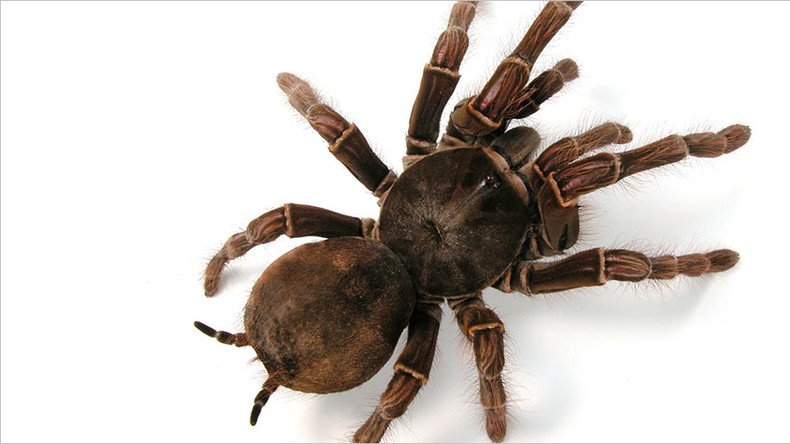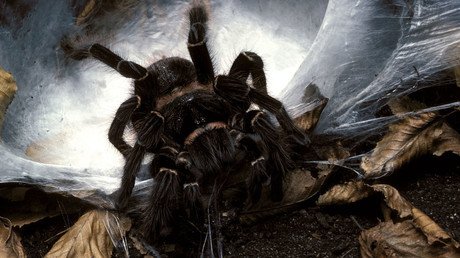Giant bird-eating tarantula found abandoned on Leicester street

A bird-eating tarantula the size of hand has been found abandoned in a plastic container on a street in Leicester.
The salmon-pink Brazilian spider, thought to be the third largest species of tarantula, was found in Narborough Road by a passerby who was “understandably shaken,” according to animal rights charity the RSPCA.
According to RSPCA animal collection officer Steve Smith, the tarantula, whose legs can grow up to 10in, had been abandoned by a pet owner struggling to tend it.
“It’s likely that the spider was an unwanted pet which someone decided to dispose of for whatever reason,” Smith said.
The officer pointed out that the exotic spider, which is now in the safe hands of a specialist, lives in the wild, and stressed the importance of reproducing in captivity the same “warm and humid” environment it is originally from.
Smith called on all spider fanatics to properly look into the species’ characteristics before committing to its care.
"We would recommend that anyone interested in keeping a tarantula as a pet thoroughly research the particular species' needs carefully first before deciding to get one, so they know what is involved and how long it is likely to be for,” Smith urged.
The bird-eating tarantulas, known scientifically as Lasiodora parahybana, are capable of inflicting great pain if they bite with their inch-long fangs.
The real menace, however, lies in the patches of barbed hair on their abdomen which irritate the victim’s skin and could potentially lead to blindness if they were to reach the eyes.
Smith said though that “despite its size, the spider was not aggressive at all.”
Exotic animals often land in RSPCA care as people regret having bought the pets once they realize the animals are too hard to care for, or the novelty of it fades.
“Caring for exotics can be challenging and expensive; the animal may grow very large, live for a long time, become aggressive or require a licence or other paperwork to be legally kept or sold,” Rachel Butler wrote in a post on the RSPCA website.
Just last week, a woman with a seven-month-old baby was forced out of her house in Stanley, County Durham, after hundreds of highly-venomous spiders, also thought to be Brazilian, broke out of a bunch of bananas bought from supermarket Asda.
She was told by pest control experts that the insects were Brazilian wandering spiders, deemed to be one of the most venomous species on the planet as it can kill in the space of two hours.
Another man, from Bristol, mistakenly received a Brazilian spider in the post back in 2015 after it was intended for the previous house owner.














